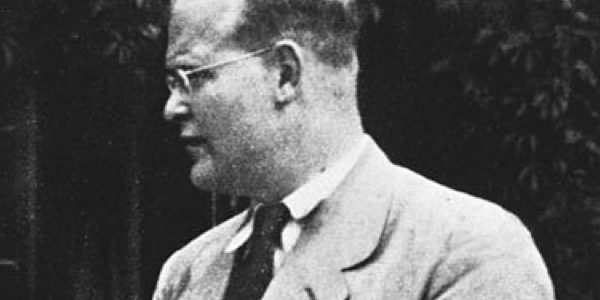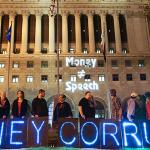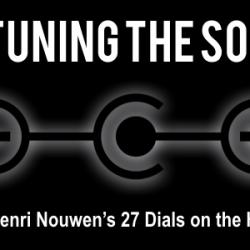 It’s possible that as a society, we have lost our access to wisdom. Sure, we have a lot of smart people in our population. And there are even a few wise ones scattered here and there. But on the whole? We seem like a people who have been seduced by foolishness and folly.
It’s possible that as a society, we have lost our access to wisdom. Sure, we have a lot of smart people in our population. And there are even a few wise ones scattered here and there. But on the whole? We seem like a people who have been seduced by foolishness and folly.
Our collective lack of wisdom is going to be more and more of a problem. In fact the lack of wisdom is more of a threat to us than outright evil.
Bonhoeffer once wrote, “Stupidity is a more dangerous enemy of the good than evil is. Against evil, one can protest; it can be exposed and, if necessary, stopped with force. Evil always carries the seed of its own self-destruction, because it at least leaves people with a feeling of uneasiness. But against stupidity, we are defenseless.” (Letters & Papers…)
Bonhoeffer was reflecting on a segment of the population whose lack of wisdom made them highly susceptible to Nazi propaganda. They were foolish, and you cannot reason with a fool. “Facts that contradict one’s own prejudice,” Bonhoeffer wrote, “need only to be disbelieved … and when facts are unavoidable, they can simply be swept aside as meaningless isolated cases.” (see also: climate change)
We are all invited to learn wisdom or not; to embrace the sometimes painful and awkward journey toward understanding or not; to change or to retrench and double down on the self-deceived notion that we have things all figured out. But only fools think they know it all. The wise are truly convinced that the only thing they really know is that they do not know much of anything, so they might just as well marshall all of the strength they can muster in order to change and grow and learn and progress toward wisdom.
Here are a few things it seems like wisdom knows, but our society doesn’t:
The wisdom of compromise
Only fools believe in win-at-all-cost situations. There is so much joy in compromise, even if it means the final product is not our own perfect ideal. Jesus said the last shall be first, and the first shall be last… tell that to the ‘America first’ crowd and watch for the blank stares. I know it’s terrible to quote him, but Dr. Phil often asks, “Do you want to be right, or do you want to be happy?” Most people would rather be right. So they’re are not happy. On the other hand, Richard Rohr sometimes says that wisdom requires the ability to “give up a little bit of your own personal truth for the sake of relationship,” believing that the relationship will teach you something even more essentially good and true in the end. This is the wisdom of compromise. (see also: U.S. House of Representatives and Senate, the abortion debate, and The Freedom Caucus).
The wisdom of change
Thomas Merton once said, “If the you of five years ago doesn’t consider the you of today a heretic, you are not growing spiritually.” He’s right. So much of our society is entrenched in the dogma of their own pure beliefs—religious, economic, philosophical, or political. Yet, nearly every wise person I know is constantly changing and growing in all of those arenas. Nearly every fool is entrenched in dogma, ideology, and litmus testing for purity. Only the wise know that the beliefs they stand on today will be called into question tomorrow. They should expect change, not resist it. If your religious, economic, philosophical or political beliefs haven’t changed in the past five years, you are missing out on the wisdom of change. (see also: immigration, cultural change, scientific discovery, et al).
The wisdom of fidelity
Ambrose Bierce called fidelity, “A virtue peculiar to those who are about to be betrayed.” There might be something to that. Yet I think it’s true that when life gets difficult it nearly always seems easier to leave a situation than to stay in it. It’s easier to bail out than it is to reengage and face up to your own shortcomings. We have been weaned in an economy that requires a mobile work force. We have been raised on the philosophies of individualism and personal freedom that encourage us to leave and/or screw other people on our way to the top—or at least on our way to getting what we want. Fidelity means sticking around even if you don’t get everything you want, because you’ll find what you truly need. Fidelity also means willing and working for the good of the society—over and above the good I want for my own life. (see also: start-up culture, upward mobility, divorce rates, and corporate downsizing).
The wisdom of suffering
Good character is formed more through failure than success. Virtue is forged in the fires of tension, pain, and suffering, because those things force us to change. Pain makes us move. “Pain makes theologians of us all,” Barbara Brown Taylor says. But, in America, we don’t do pain. We don’t do suffering. You know what we do? We do avoidance, numbing, and blaming. And so we miss a basic building block of wisdom. It’s like Merton said: “The more you try to avoid suffering the more you suffer, because smaller and more insignificant things begin to torture you in proportion to your fear of being hurt.” (see also: xanex, alcohol, weed, porn, television, et al).
The wisdom of uncertainty
We tend to think we are much smarter than we actually are. But life is uncertain. To try and make the uncertain certain is folly. We waste so much energy fighting battles that are nothing more than our information is better than your information—capitulate. We cannot see that most truth is bound up in paradox and mystery—that if we ever happen onto anything that is truly true, it will inspire wonder, and awe, not defensiveness. Wisdom inspires humility, not aggression. The truth comes clothed in mystery, and in the splendor of paradox. Most people who say they fight for the truth are really just fighting for control. Uncertainty means that the future is open. We must discover it together. It may not be what we want it to be, or thought it would be. No, it will be much better than that—that is unless we try to engineer the outcomes our purist ideologies require—because if our ideologies were ever truly realized then our future will indeed be a nightmare. (see also: FoxNews, Brietbart, t.v. preachers, neo-Calvinists, and Patheos Progressive Religion bloggers).













